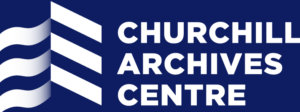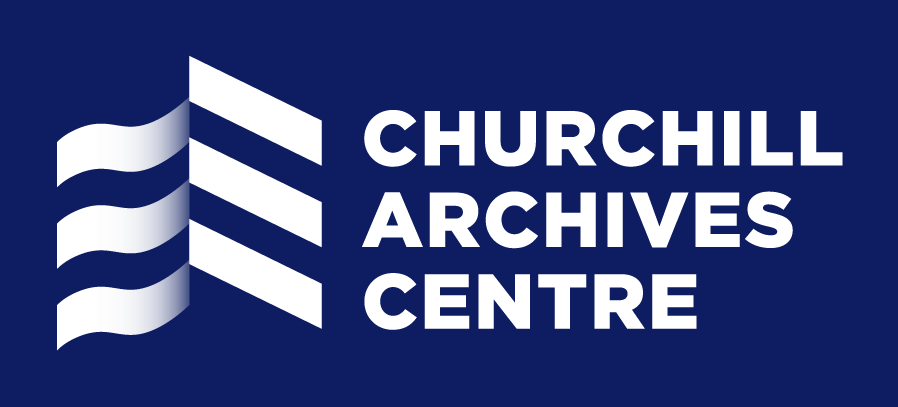Practical Guidelines on using Primary Sources
Using the Churchill Archives Centre as a student
Before using the archives, you should discuss your project with your teacher and with a member of staff at the Archives Centre. We can assess the feasibility of our archives for your research, and help to identify collections with relevant material. This could save you a lot of time – especially if the items you would want are unavailable for any reason!
You can contact Archives Centre staff by emailing [email protected] or phoning 01223 336222.
The Archives Centre is not ‘self service’ like a library; you can’t borrow archival material. You need to look through catalogues and lists, and decide which items you want to see. Then, you can register as a reader, book an appointment in the reading room, and request for your items to be brought to you on that day.
Your file request can be made by sending an email, or by simply talking to the staff member on the reading room desk.
Reading room rules
- Don’t eat, drink or smoke in the reading room.
- Use a pencil, not a pen.
- Bring a bound notepad, not loose pages that could get mixed up with the archives.
- Take great care in handling archives: don’t lean on them, or touch them with dirty hands.
- Observe the security rules: leave your bag in a locker.
- If you are given a file of loose papers, make sure to keep them in order.
These rules protect the archives from damage.
You are allowed to bring laptops, phones, and tablets into the reading room. You are allowed to take photographs of the archives for free. We also have a limited free copying service – we will make digital images of the archives and send them to you. We can make high-quality digital images (e.g. for books and films) but there is a charge for this service.
Tips for using primary sources
Leave time to look through lists, catalogues and documents. You may not find exactly what you want straight away!
Read secondary (printed) sources, such as books and articles. These will provide background information and focus your mind on your project.
Give yourself plenty of time to look at the primary sources. Remember that you can be slowed down by having to decipher difficult handwriting. The Archives Centre staff may be able to help you with difficult handwriting.
An example: This document is part of a letter from Elizabeth Everest, Winston Churchill’s nanny, to young Winston. It was written on 2 November 1891 and shows how difficult it can be to read older handwriting. Compare the image of the document with the text below…

Letter from Elizabeth Everest, Winston Churchill’s nanny, to young Winston, 1891. Reference: Churchill Papers, CHAR 1/4/18
… &they have not begun to do it yet. Edney comes up on Friday for good. Have you enquired if they have thatched the top of your Den yet? Have you got the instrument yet you were having made does it answer? I have no news to tell you but one request to make that is will you kindly favor me with a few lines. Out of sight out of mind with Winny. Goodbye my Lamb best love to you.
– Ever your loving old W.E.A.E. [?Womany Elizabeth Ann Everest]
[sketch] My photo
While taking notes, always note down the “reference code” of the material you are looking at. This will be four capital letters followed by numbers and slashes (e.g. CHAR 2/1/4). While some documents may have similar titles, every file has a unique reference code, so they are key to locating the right one. You should quote them in your references/bibliography. Making a note of the reference code can mean you avoid having to go back through the same material over and over again.
Lastly, don’t be afraid to ask for help. Our staff are here to support all researchers.
For more visitor information, take a look at our Visit Us page or contact us at [email protected]

